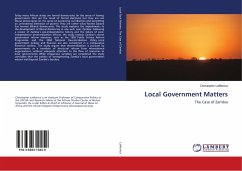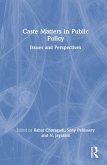Today many African states are formal democracies (in the sense of having governments that are the result of formal elections) but they are not liberal democracies (in the sense of protecting civil liberties and permitting an unhindered alteration of power). They are rather what Fareed Zakaria has termed illiberal democracies. This study explores the impediments to the development of liberal democracy in one such case: Zambia. Following a review of Zambia's pre-independence history and the failure of post-independence decentralization efforts, the study reviews Zambia's recent government reform measures, such as the 1993 Public Service Reform Programme and the 2004 National Decentralisation Policy. Local government policies and finances are also considered in a comparative historical context. The study argues that decentralization is pursued by governments as a mandate of structural reform from international organizations, without adequate attention to the flow of resources to local governments. While indigenous variables are considered the study concludes that the politics of strengthening Zambia's local governments extend well beyond Zambia's borders.
Bitte wählen Sie Ihr Anliegen aus.
Rechnungen
Retourenschein anfordern
Bestellstatus
Storno








